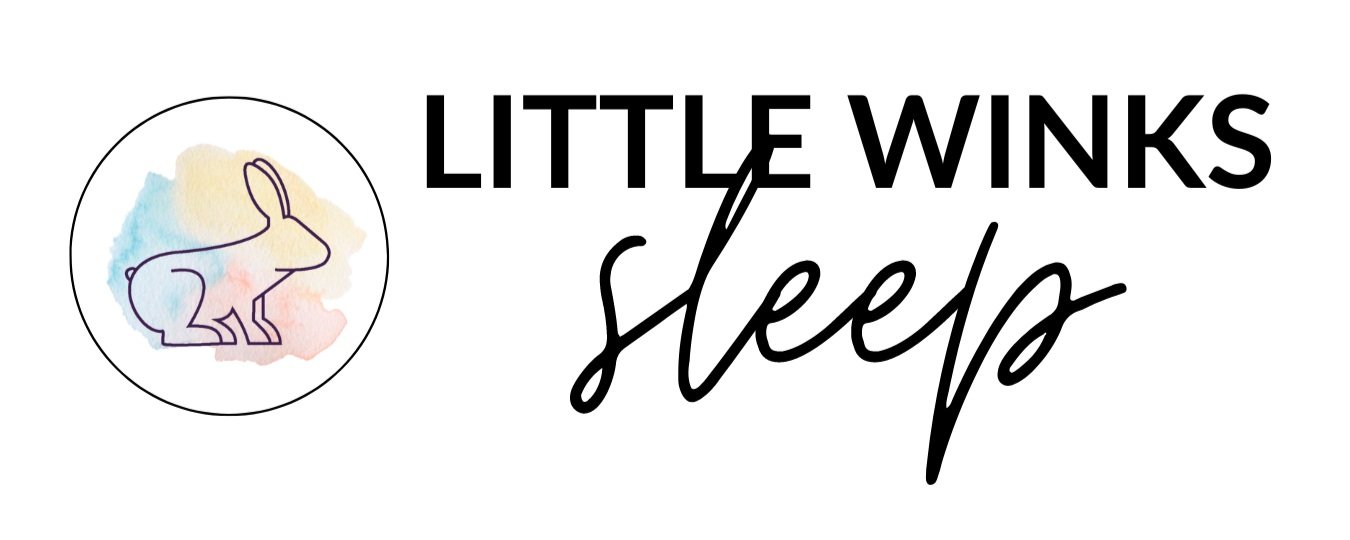The Benefits of Teaching Your Baby to Sleep Independently
Sometimes I take potential client calls while working in the same room as my husband. I try to avoid it, as I like to keep work calls separate from my family life. A few times in the past I know he’s wondered why I don’t push the benefits of teaching your baby to sleep in order to try to “land a client.”
First, I want clients to hire me because they trust me and our methods at Little Winks Sleep, And because they feel ready to teach their baby or toddler to sleep. I don’t want to have to “convince” them. I also avoid talking about the benefits of sleep coaching because the list is so exhaustive that it could easily make a parent feel awful for not choosing to teach their little ones to sleep independently sooner.
What Is An Independent Sleeper?
I believe very strongly that as parents, and especially as mothers, we are doing the best we possibly can. I never want to be the person who makes another parent feel guilty for their parenting choices.
Having said that, once and for all, I need to admit openly that teaching your child how to be an independent sleeper has enormous benefits. What is an independent sleeper? An independent sleeper is…
1) able to go down fully awake,
2) alone,
3) without a soother, feeding to sleep, rocked or bounced to sleep,
4) in a crib,
5) and be able to fall asleep 100% on their own
6) without any help or interaction from you
7) for all naps and at bedtime
The reason it is vital that your child be an independent sleeper is for the following reasons:
It is normal for humans of all ages to wake throughout the night as they link one sleep cycle to the next. If your child does not know how to go from being awake to being asleep 100% *independently*, they will wake up fully seeking that help to go back to sleep. This type of fractured sleep is highly detrimental. Studies have shown that fractured sleep, every 2 hours over the course of a typical night of 8 hours of sleep, is almost as detrimental to the body as never having gone to sleep at all.
The Physical Benefits of Sleep
Let’s focus first on the physical benefits of sleep for children, as well as the drawbacks of inadequate sleep. Kids need sufficient sleep in order to form short and long term memory. And to rapidly absorb all the new things they experience each day (think language acquisition and cognition). Children who don’t get enough sleep have a higher likelihood of being obese and they also suffer from depressed immune systems. Regardless of whether or not your child is breastfed, infants are especially susceptible to germs they are encountering for the first time. And lack of sleep will make them more likely to become ill.
Even as young infants and children, uninterrupted sleep protects the heart against heart disease in the future. This is because interrupted sleep causes cortisol to remain elevated overnight, putting kids at risk for diabetes and heart disease.
Infants and toddlers who don’t sleep enough are also substantially more accident prone (to say nothing of mom and dad driving around during the day). Studies have shown that kids who didn’t get enough sleep were far more likely to end up with an injury that required medical attention. Finally, kids who show sleep problems by preschool are more likely to exhibit signs of ADD and ADHD by the time they hit elementary school. However, experts are still out on whether some kids actually have ADD/ADHD, or whether they’re simply sleep deprived.
The Cognitive and Emotional Benefits of Sleep
Physical effects of sleep deprivation aside, we all know the way sleep deprivation affects children’s moods. Babies (and adults who are sleep deprived) suffer from irritability and lowered impulse control. It’s harder for kids to listen and comply with directives if they’re tired and cranky. Normal everyday activities like putting on shoes or getting in a car seat become battles. And this is to say nothing of the distraction that takes over while trying to learn something new. Sleep deprivation has even been linked to increased incidence of depression in adults. So it’s even possible that sleep deprived kiddos struggle to feel as happy and carefree during the day as they would have had they gotten sufficient sleep.
Inadequate sleep touches practically every aspect of an infant and toddler’s life. Their day to day existence, both inside their body and out, is negatively affected if they are not getting enough sleep. The fantastic news is that it’s never too late to help your child learn how to fall asleep, put themselves back to sleep easily throughout the night, and take adequate naps during the day.
We can help you achieve these goals!


